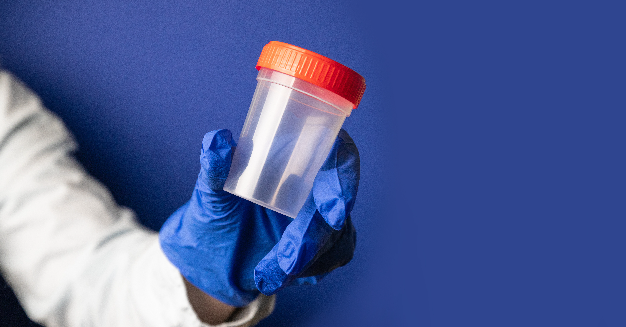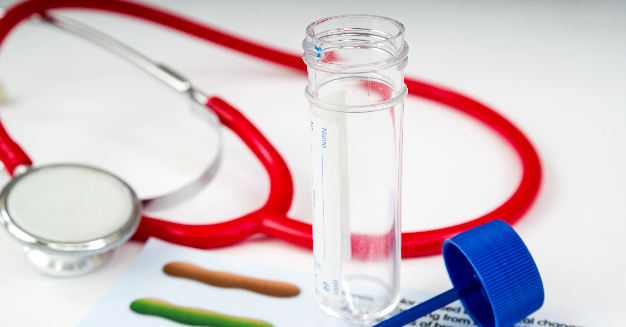However, when should one consider stool testing? In this comprehensive guide, we’ll delve into the scenarios, factors, and indicators that can help you determine when to do stool testing so you know when to take this step to further understand your body and health if necessary.
Understanding the Importance of Stool Testing
Stool cultures are an age-old method that allows health professionals to gain significant insight into the inner gut health of an individual. It involves isolating and identifying the microorganisms found in a stool sample. It can detect harmful bacteria, such as Salmonella, E. coli, and Campylobacter, and aids in identifying the proper antibiotic treatment.
Stool cultures are an indispensable tool in cases of suspected infections, food poisoning, and diarrheal illnesses. Their accuracy and ability to guide targeted treatment are significant in the world of gastrointestinal diagnosis and testing.
Different Types of Stool Testing
Each type of stool testing serves a specific purpose and provides unique insights into different aspects of digestive health. The choice of testing method depends on the symptoms, concerns, and health history of the individual. Consulting with a healthcare provider is essential to determine which type of stool testing is most appropriate for a given situation.
Stool DNA Testing
Stool DNA testing is a cutting-edge technique that involves analyzing DNA fragments shed by cells in the colon. This type of testing is primarily used for colorectal cancer screening. By detecting specific genetic markers associated with cancer, stool DNA testing can identify early signs of colorectal cancer and precancerous growths.
Fecal Occult Blood Test (FOBT)
FOBT is a type of stool test that checks for the presence of hidden blood in the stool. It’s often used to screen for colorectal cancer or other gastrointestinal issues that might cause bleeding, such as ulcers or polyps. This non-invasive test can be crucial in detecting potential health concerns before they progress.
Stool Parasite Testing
Stool parasite testing is used to detect the presence of parasitic organisms in the digestive system. Parasitic infections can lead to a range of symptoms, including gastrointestinal distress and malnutrition. This testing method helps diagnose and identify the specific type of parasite, guiding appropriate treatment.
Stool Fat Testing (Quantitative Fecal Fat Test)
Stool fat testing assesses the amount of fat present in the stool. Excessive fat in the stool can be a sign of malabsorption, where the body isn’t effectively absorbing nutrients from the food consumed. This test can help diagnose conditions like chronic pancreatitis, celiac disease, and other disorders that affect fat digestion and absorption.
H. pylori Antigen Test
H. pylori is known to cause various gastrointestinal issues, including gastritis and peptic ulcers. This non-invasive test involves analyzing a stool sample for traces of H. pylori antigens, which are specific proteins produced by the bacterium. By detecting these antigens, healthcare professionals can accurately diagnose H. pylori infections and initiate appropriate treatment.

How is a Stool Culture Taken?
A medical professional normally provides a sterile container to collect the stool sample. The sample needs to be collected in a clean collection area, so make sure to wash your hands and use a clean disposable tool to collect the stool. Please collect the sample from the toilet bowl without urine or toilet paper from mixing with the stool, and place plastic wrap in your toilet beforehand to prevent contamination. Your healthcare provider may provide a plastic bag to put the sample in after collection. Once you are done collecting a stool sample, you will bring the container back to your physician, and they will send it off to a lab for its contents to be analyzed. Normally, it only takes a few days for results to be ready.
Reasons to Consider Stool Testing
Persistent Symptoms
If you’re experiencing persistent digestive symptoms, such as abdominal pain and cramping, bloating, bloody diarrhea, constipation, or changes in stool consistency, you should consider stool testing. These symptoms could indicate various conditions like irritable bowel syndrome (IBS), inflammatory bowel disease (IBD), prolonged bacteria, or infections. Stool testing can provide valuable information about the presence of pathogens, inflammation, or other abnormalities that might be causing these symptoms.
After Traveling or Possible Infection Exposure
Traveling to new destinations, especially to regions with different hygiene standards, can expose you to a variety of disease-causing bacteria and viruses. If you’ve recently traveled to an area known for gastrointestinal infections, foodborne illnesses, bacteria, or parasites, consider stool testing a few weeks after your return. This precautionary measure can help ensure you haven’t contracted any infections that could lead to health issues later on.
Changes in Diet or Medications
Changes in your diet or medications can significantly impact your digestive system. If you’ve recently made substantial changes to your diet or started taking new medications, it might be a good idea to undergo stool testing to see how the different types of bacteria are changing and interacting in your gut. This can help you understand how these changes are affecting your gut health and whether any adjustments are necessary.
Family History of Digestive Disorders
If you have a family history of digestive disorders, such as Crohn’s disease, ulcerative colitis, or colorectal cancer, you might be at a higher risk of developing these conditions yourself. Regular stool testing can proactively monitor your gut health and catch any potential issues early.
Before and After Antibiotics
Antibiotics can disrupt the balance of your gut microbiome, leading to digestive issues or infections due to the imbalance of good and bad bacteria in your gut. If you’re about to start a course of antibiotics, consider getting a baseline stool test done. Additionally, after completing the antibiotic treatment, having another stool test done can help assess the impact on your gut microbiome and ensure that everything returns to normal when comparing test results.
Colorectal Cancer Screening
Colorectal cancer is one of the leading causes of cancer-related deaths worldwide. Regular screening, including stool testing, is crucial for detecting this cancer early when treatment is most effective. Stool tests can identify hidden blood in the stool, which can be an early sign of colorectal cancer. Depending on your age and risk factors, your healthcare provider will recommend the appropriate screening schedule.
Unexplained Weight Loss
If you’re experiencing unexplained weight loss along with digestive symptoms, it’s important to investigate further. Weight loss could be a sign of malabsorption or other underlying health issues. Stool testing can provide insights into nutrient absorption and potential causes of weight loss.

Routine Check-ups and Preventative Health Measures
Regular health check-ups are essential to catch potential health issues before they become serious. Including stool testing in your routine check-up can help detect early signs of digestive disorders, infections, or even more severe conditions like colorectal cancer. Health professionals often recommend stool testing every year or every few years, depending on your age, medical history, and risk factors.
GI Stool Testing at OnPoint Labs
Stool testing has proven to be an indispensable tool in diagnosing and treating issues within our digestive system. Knowing when to do stool testing can provide early detection, personalized insights, and proactive interventions if you’re having issues with your digestive system. If you’re local to the Sugar Land, Texas area, OnPoint Labs can provide cutting-edge GI stool testing.
With a commitment to accurate results and patient care, OnPoint Labs empowers individuals to take charge of their digestive health. Through their advanced testing services, individuals in the Greater Houston area can access the insights needed to make informed decisions about their well-being. Remember, your digestive health is integral to your overall health, and OnPoint Labs is here to guide you on your journey to well-being. Visit our website today to learn more.


